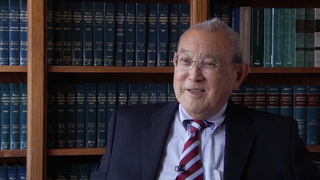Entrevistas
How she transitioned from anthropology to law
I became an Anthropology Major with a Sociology Minor. I thought I’d become an anthropologist; I went for my teaching credential after that because I could not really support myself nor my fiancé after we got married on a grant from anthropology which would have required me to be, most likely, out of the country. I would have to write, you know, get someone to sponsor me to work for a PhD. So I became a research assistant and an exam grader also in the Department of Education.
How I changed over was I became pregnant after I’d been teaching, I had my tenure. The school district only gave you one year leave of absence, and I wasn’t ready to go back to teaching at that point. I had done some volunteer work at legal aid when my husband was going to law school at USC. And part of it was they were trying to reach out to the Asian community, so I had gone and done some volunteer work when we went to Chinatown, then I took my father with me to translate and we went into Little Tokyo in order to establish services for the Asian American community. And that’s how I transitioned into law. It would — I thought it would give me greater flexibility, and it also gave me an avenue to serve.
Fecha: July 27, 2018
Zona: California, US
Entrevista: Kiya Matsuno
País: Watase Media Arts Center, Japanese American National Museum; Japanese American Bar Association




